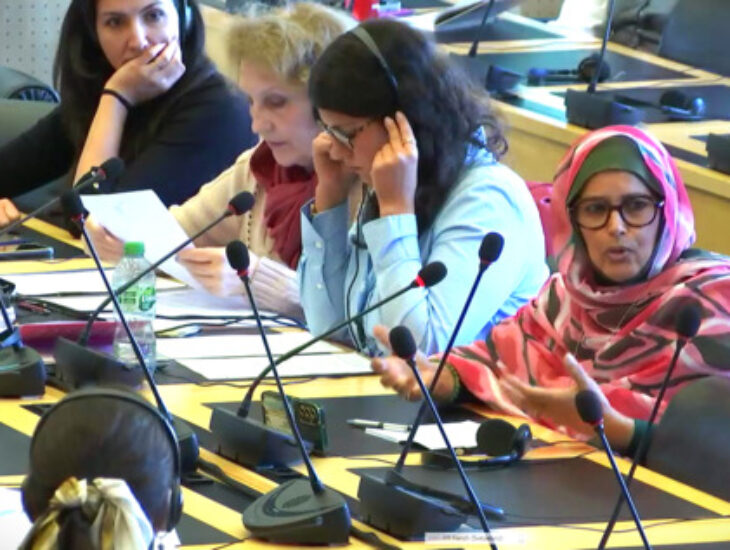On Monday, February 17, ICIP presented the book Lluís Companys: contra la guerra , published jointly with Angle Editorial in the “Classics of Peace and Nonviolence” series.
The event, which took place at the Palau Robert in Barcelona, began with a minute of silence in memory and honor of Alfons Banda, vice-president of ICIP and director of the series, who passed away in Barcelona on January 30.
ICIP president, Rafael Grasa; the book’s publisher, Josep M. Figueres; the author of the prologue, Antoni Segura; and the Secretary General of the Department of Governance and Institutional Relations, Lluís Bertran, all took part in the session. In their speeches, all of the participants expressed words of gratitude and in memory of Alfons Banda for his work as head of the “Classics of Peace and Nonviolence” series.
Historical context
The book Lluís Companys: contra la guerra is a compilation of writings and speeches delivered in Parliament by the President of the Generalitat, Lluís Companys, against Spanish military presence and intervention in Morocco between the years 1921 and 1923. These were years of social agitation and violence in Catalonia, and especially in Barcelona, as Professor Antoni Segura, author of the prologue, pointed out in his speech. Segura contextualized Companys’s writings against the Spanish war in Morocco, delivered to the press and in Parliament following a trip by the President to Tangiers, and after the Disaster of Annual, “the Spanish Army’s greatest colonial disaster, with over thirteen thousand casualties.” Despite Companys’s harsh criticism of the war, Segura explained that the President’s position was in line with “general Republican denunciations against the Spanish Army, more than an ideological pacifism; it is not absolute antimilitarism.
The publisher, Josep M. Figueres, who has worked on the writings and speeches of Companys since 1997, “studying the newspapers and magazines of the time – such as L’Avenir and El Diluvio – page by page” expressed a similar opinion. Figueres explained that Companys opposed the war, not out of ideological or altruistic convictions, but rather to protest against the corruption and lack of professionalism of the Spanish Army, while at the same time demanding that all the politicians who had served in State institutions be held accountable.
According to the publisher, the book is an example of “the recovery of the memory of a president and of a country.”
18.01.2014




